Announcements
Bookmark this page as your main entry point to the course website. That way, you’ll be sure to see any changes and other information I’ve posted here.
CURRENT ANNOUNCEMENTS
Grades are posted to CUNYfirst
27 May 2022
I have posted the official overall course grades to CUNYfirst.
I want to thank you all for your involvement, enthusiasm, and insights into the ancient world during this hopefully transitional semester. I wish you all a great summer and good luck in your future endeavors.
ARCHIVE
Overall course grades are posted
26 May 2022
The overall course grades have been posted on the My Grades page. The course grade appears in the grading page calculation section in the blue stripe at the bottom.
If you believe there is a discrepancy—in particular, if there is an assignment marked as missing that you believe you turned in—please touch base with me as soon as possible so that we can make sure we are on the same page.
I will be posting the course grades to CUNYfirst on Friday.
Final exam grades posted
24 May 2022
The grades for the final exam have been posted on the My Grades page.
Please upload any missing essays or resubmissions for reversible deductions to BlackBoard by Wednesday so that your grade reflects all it can reflect.
Final course grades will be posted to the My Grades page and CUNYfirst on Thursday.
Thanks for a great semester!
20 May 2022
Grades for the final exam will be posted by May 25. Please submit any missing papers and/or resubmissions for reversible deductions so that your course grade can include everything.
Images Essay grades and markups posted
21 May 2022
The grades and markups for the Images Essay are posted on the My Grades page on the course website.
If you have any questions about the grades, comments, or deductions, please don’t hesitate to seek me out by email.
Reversible deductions. Some of you may find that you received “reversible deductions” for issues relating to formatting and citations. The good news is, those are points that you can get back. Check the cover page of your markup to see if there are any check marks and points taken off next to the reversible deductions. If there are, I made notes on the cover sheet or in the essay about the issue, and included a handout with the requirements.
Please resubmit your essay to BlackBoard with those problems fixed, and I’ll be in a position to reverse those deductions. Only reversible deductions can be reversed, so don’t resubmit for anything other than reversible deductions.
Missing essays. If you have not gotten your paper in, please do so as soon as you can. In terms of your course grade you’re better off with any grade, even with a lateness penalty, than a zero for the assignment. Remember also that the lateness penalty is capped at a maximum of 30 points, so turning your paper in, even very late, is better than not doing so.
Ultimate Deadline for Late Papers and Resubmissions
15 May 2022
The absolute deadline for all late papers and reversible deduction resubmissions is Wednesday, May 25. No papers or resubmissions will be accepted after that date unless an incomplete has been mutually agreed prior to that deadline owing to emergency circumstances.
Welcome to Week 15!
15 May 2022
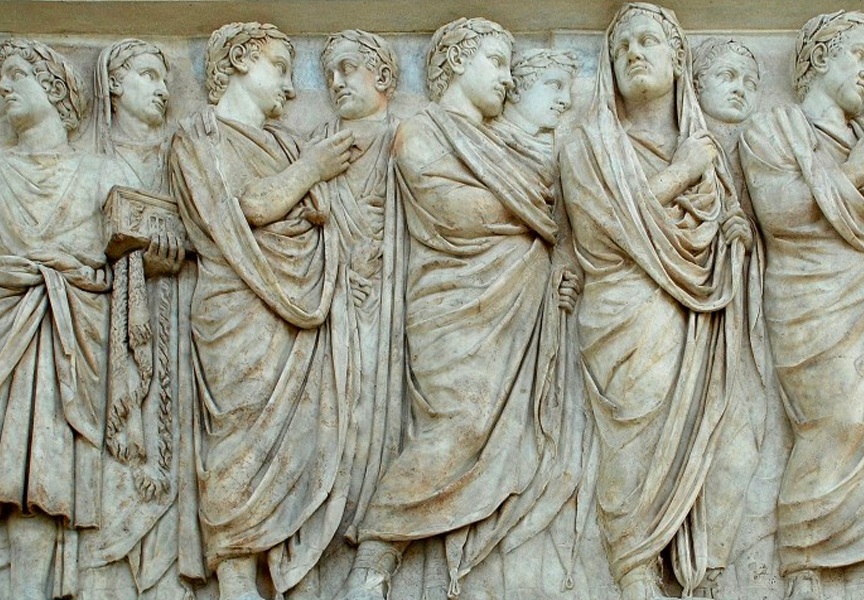
At our last meeting we’re continuing our discussion of the Roman principate. What do you think makes the principate continue to work even after rulers like Caligula and Nero? What do you think is good and bad for Rome and the empire about the principate? What does it mean to be Roman in the days of the emperors? Has that changed since the beginning of the Roman story?
Looking forward to an interesting discussion. Please make sure to attend and help bring our semester’s worth of explorations and insights together into focus. See you Tuesday!
Clouds Essay grades and markups posted
9 May 2022
The grades and markups for the Clouds Essay are posted on the My Grades page on the course website.
Sorry for the delay in getting these back to you. I am in the process of completely clearing the decks of all my backlogged grading so that I can grade your images essays and final exams promptly. I was really pleased with the Clouds essays generally: lots of interesting observations and insights, some of which I haven’t seen recently.
If you have any questions about the grades, comments, or deductions, please don’t hesitate to seek me out by email.
Reversible deductions. Some of you may find that you received “reversible deductions” for issues relating to formatting and citations. The good news is, those are points that you can get back. Check the cover page of your markup to see if there are any check marks and points taken off next to the reversible deductions. If there are, I made notes on the cover sheet or in the essay about the issue, and included a handout with the requirements.
Please resubmit your essay to BlackBoard with those problems fixed, and I’ll be in a position to reverse those deductions. Only reversible deductions can be reversed, so don’t resubmit for anything other than reversible deductions.
Missing essays. If you have not gotten your paper in, please do so as soon as you can. In terms of your course grade you’re better off with any grade, even with a lateness penalty, than a zero for the assignment. Remember also that the lateness penalty is capped at a maximum of 30 points, so turning your paper in, even very late, is better than not doing so.
Quiz #10 grades and markups posted
8 May 2022
The grades and markups for Quiz #10 are posted on the My Grades page on the course website. I strongly recommend spending a moment to take a look at my commentary on the quiz, as I use these to emphasize the key take-aways from last week’s topics:
- The Quiz Notes for Quiz #10 are live on both the Quiz Notes page and the Print/PDF page.
Welcome to Week 14!
8 May 2022
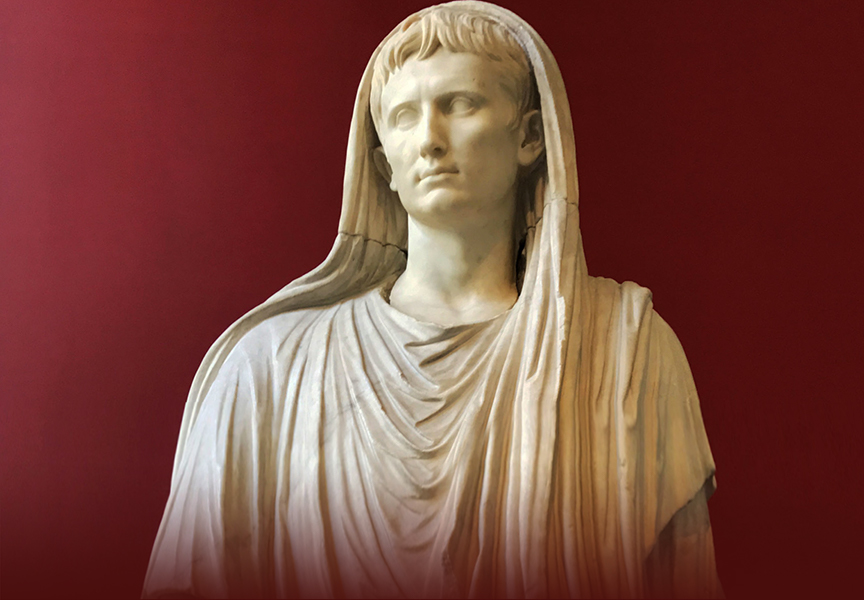
This week we’re discussing the principate. What exactly is the principate? How is it that Rome, which was so intolerant of the idea of a king that the mere rumor he was angling to become king factored into Caesar’s assassination, accepted the one-man rule of Octavian, who came to be called Augustus? What made Augustus different from a king?
What do you think makes the principate continue to work even after rulers like Caligula and Nero? What do you think is good and bad for Rome and the empire about the principate?
Looking forward to an interesting discussion. See you Tuesday!
Important change to reading assignments for the final three class meetings
6 May 2022
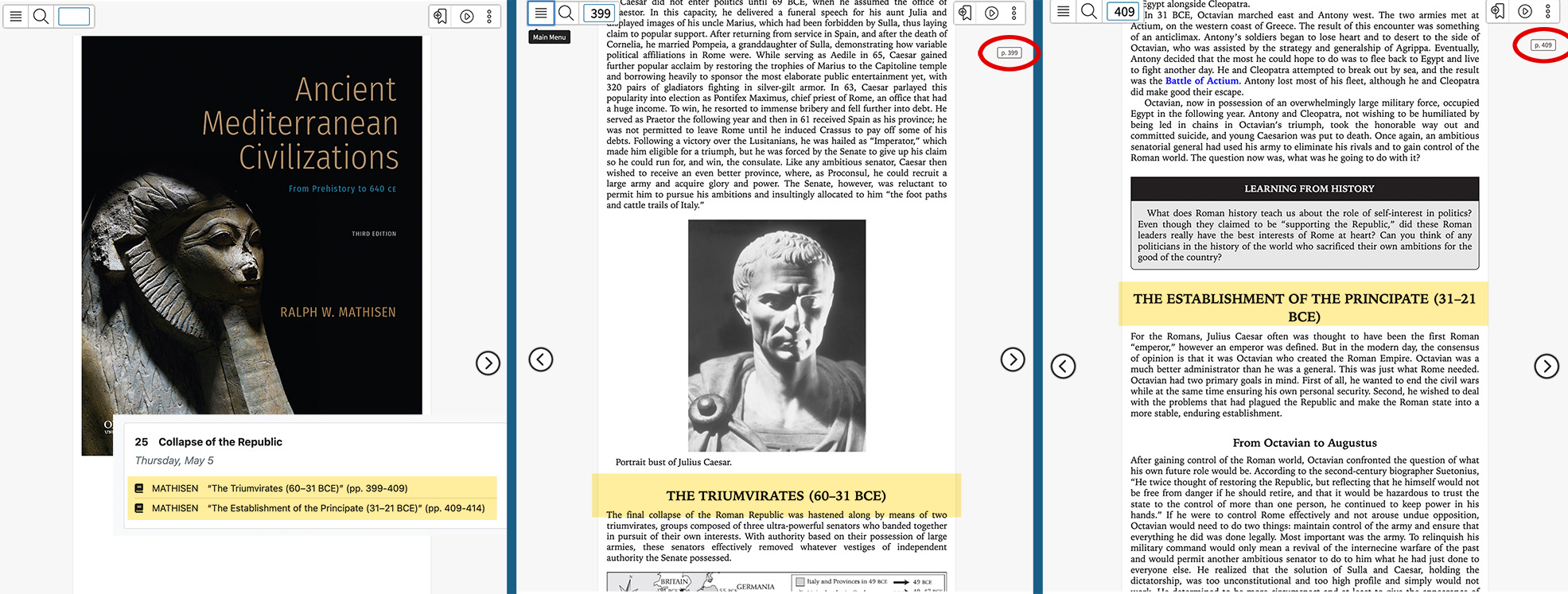
I have two updates regarding the reading assignments.
Updated assignments for May 10, 12, and 17. Because I am behind the reading assignments in class and we are at a stage of Roman history where there are a lot of important things happening that I really want to talk about in class, I have changed the schedule so that there will be no reading assignment for May 10. That will give me a little time to catch up. The readings originally assigned for May 10 are now due for the 12th, and the readings originally for the 12th are now due for the 17th. The Schedule page has been updated accordingly, so please take a look and the updated reading assignments there.
May 5 readings. It was brought to my attention that there might be a problem with the page ranges for the reading assignments for the May 5 class meeting, which would have in turn affected your performance on Quiz #10. It was quite possible I had made an error, of course, so when I got home I made sure to go back and recheck my e-copy of Mathisen 3rd edition, the book assigned for this course. As it turns out, in my copy, the page ranges are correct (see image).
I’m not sure what happened, but if your copy of the textbook does not agree with these page ranges, one possibility is that you may not have the 3rd edition: I checked the 2nd edition, in particular, and the page ranges assigned for May 5 do indeed cover a later period. If you have the 3rd edition for sure but your page ranges are different from mine, please let me know and send screenshots so that I can contact the publisher and get this figured out.
Actually it is partly for this reason that I specify the section titles to be read, to try to make it easier to find the correct content for the week even if you happen to be using a different edition. I do the same in all my courses. If your edition does not agree with mine in terms of page numbers, please use the section titles to find the reading required for each class meeting.
Quiz #9 grades and markups posted
4 May 2022
The grades and markups for Quiz #9 are posted on the My Grades page on the course website. I strongly recommend spending a moment to take a look at my commentary on the quiz, as I use these to emphasize the key take-aways from last week’s topics:
- The Quiz Notes for Quiz #9 are live on both the Quiz Notes page and the Print/PDF page.
Reviewing for the Final Exam
1 May 2022
I’ve updated the final exam page. On this page you’ll find information about the final and review materials.
The review sheet is not designed to be a list of answers so much as questions you can use to guide you toward the areas you want to focus on in your review. As you read through the questions on the review sheet, those you have a sense of how you might answer are lower priority for review than those questions you’re not sure how you would answer; those you’d then want to go back and spend some time reviewing in your notes, the readings, the videos, quiz notes, and class discussions.
Also note that the terms are a useful way of finding concepts you need to go back and review, so I’d advise stepping through the terms at the end of each topic and making sure you have a sense of what they mean and why we’re studying them.
To prepare for the essay, I suggest that you focus on what you would consider to be the major themes of this course, and think about possible questions that relate to those topics across the periods and transitions we’ve explored. For the essay you’ll be asked to give three examples, so you can sketch out a question about a recurring topic in the course, your perspective on that question, and three similar or contrasting examples of that demonstrate that perspective.
Please take a look at the review sheet for details on the exam’s content and structure. Once you’ve read through the review sheet, if you have any questions about the exam or about any of the topics covered in it, please don’t hesitate to come to me or bring them up in our next class.
To get to the final exam page, click on “Exam” in the navigation index, or follow the link to the “Final Exam page” below.
Reminder: The Images Essay is due Monday, May 16
1 May 2022
Here are a few brief reminders about the Images essay, which is due very soon on Monday, May 16.
- Watch the video. Make sure to watch the overview video, since that tells you exactly what I am looking for. It’s on the Images Essay page.
- Thesis statement. Make sure you have an introduction with a thesis statement (your argument asserting your position on the question/problem being addressed) and a body that described and discusses three examples from the sources supporting your thesis statement. For models and explanations on how to do this, see “Writing a Position Paper” (a.k.a. “The Elephant Pamphlet”), which is on the Resources page.
- Sources.
- For the museum option, if you can go to a museum in person and view the works directly that is what I strongly prefer, as this option is about your subjective reactions to experiencing the works you are writing about. Remember to choose two works that have the same subject (two little girls, two warriors, two Minervas) but from different times or places so you can talk about the implications of how the same concept was conveyed differently in different times or places.
- For the film option, you need to write about the agenda of the filmmakers and the agenda of the authors of the primary source and how each is using an ancient culture to impress their own beliefs (the filmmakers’ and the authors’) on the audience. If you’re not sure about the primary sources for the film you chose, make sure to come to me and we’ll discuss.
- Requirements for all papers. You must adhere to the requirements for all papers (listed on the Essay Musts page). Not meeting the requirements for all papers will mean a lower grade.
- Template. There is an MS Word template already set up with some of the formatting I require on the Resources page. If you use Word I strongly recommend making use of this template. There is one for Google Docs as well.
- Late papers. As per the syllabus, late papers are marked down by ten points per class meeting, up to a cap of thirty points. Avoid this penalty and block out the time you need to prepare, write, and review your essay so that it can be submitted on time.
- BlackBoard. All essays are uploaded to BlackBoard. Look for “Upload Assignments Here” in the left-hand menu. Your essay needs to be uploaded as a Word (preferred) or PDF file attachment, not pasted in as text submission. If you use a browser-based word processor, you’ll need to download or export to a Word document and upload that.
I’m happy to discuss any aspects of your sources or the essay, so please come to me if there’s anything you’re not sure about. I’m looking forward to hearing your interpretations of your chosen depictions of the ancient world!
Welcome to Week 13!
1 May 2022
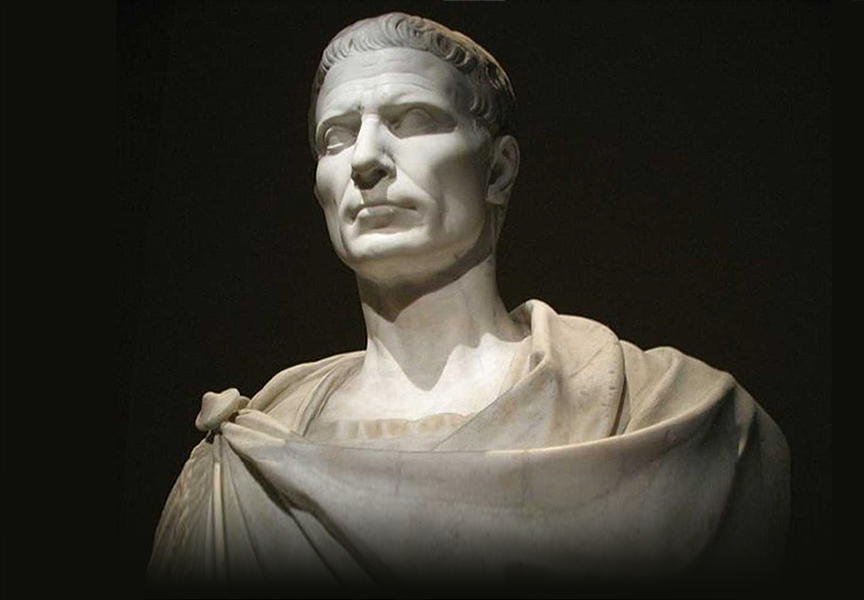
This week we’re talking about a series of massive turning points for the Roman Republic: the very different dictatorships of Sulla and Caesar, and the final collapse of the Republic, to be replaced by the one-man rule of Augustus.
What do you think Sulla was most interested in accomplishing? What is his legacy? What do we think of Pompey?
What was Caesar’s goal, for himself and for Rome, and why was he killed? All things considered, does he deserve praise as a great leader or censure as an ambitious seeker of power? What about Antony—he was the experienced lieutenant of Caesar, so why did he lose out to a kid who started with nothing but Caesar’s name?
What exactly is the principate? How is it that Rome, which was so intolerant of the idea of a king that the mere rumor he was angling to become king factored into Caesar’s assassination, accepted the one-man rule of Octavian, who came to be called Augustus? What made Augustus different from a king?
Looking forward to hearing your thoughts and reactions. See you Tuesday!
Welcome to Week 12!
24 April 2022
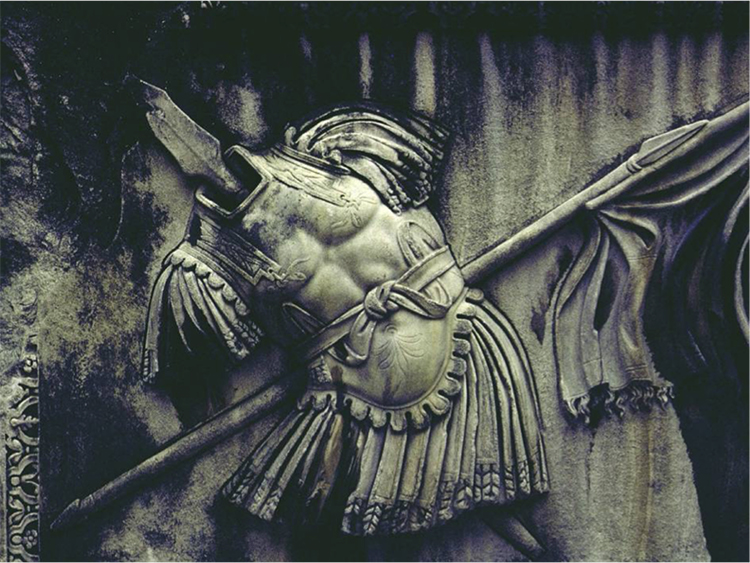
This week we’re talking about the Romans replacing the kings with a Republic. What stands out to you as the defining characteristics of the Republic? What does this idea mean to the Romans? The early history of the Republic involves an ongoing conflict between the patricians (families that control the priesthoods) and the plebeians (all other families of any class). Where does this conflict come from? Why are the priest-families so important to the Roman political system?
This week we’re talking about how and why the Romans shift toward military expansionism, and some of the repercussions that follow. Why do the Romans become militaristic and expansionist?
How do you think they see their rivalry with Carthage? Why do you think Hannibal is able to almost win—and why does he ultimately lose? Why does Rome seem to have such an off-hand approach to governing the territories it consumes or conquers?
Looking forward to hearing your thoughts and reactions. See you Tuesday!
Quiz #8 grades and markups posted + Important Note about Clouds
22 April 2022
The grades and markups for Quiz #8 are posted on the My Grades page.
The Quiz Notes for Quiz #8 are live on the Print/PDF page.
• • •
Important note about Clouds:
Grading the question about the message Aristophanes intended, I noticed a few responses that suggested Aristophanes was urging new thinking, questioning tradition, and abandonment of the gods. This is what the characters in the play argue at first, but the play is an emphatic statement AGAINST these ideas. The sophists at the Thinkery are shown over and over to be led by their way of thinking into ridiculous and immoral thinking; this is demonstrated first by the debate (in which Unjust Argument wins) and most importantly when the son, Pheidippides, demonstrates the immorality he has learned from them by shockingly attacking his own father.
In the end, the lead character, Strepsiades, realizes that the teaching of the sophists is a moral threat to Athens and burns down the Thinkery; as he does so he repents of having believed their teachings even for a while and apologizes to the gods for turning his back on them.
Clouds is Aristophanes arguing that tradition and trust in the gods are what made Athens strong in character and morality, and that those who engage in new thinking and the questioning of tradition and the gods are placing Athens in urgent and desperate peril.
Notes and reminders about the Clouds essay (due April 25)
18 April 2022
Here are a few reminders on the Clouds essay, which is due on Monday, April 25. Mostly this a repeat of what I have said before, but please read it anyway. Once again, the starting point I’d like you to bear in mind in that this essay is about making an argument and supporting that argument with evidence—in this case, three specific moments from Clouds that demonstrate an illustrate the argument you are making in the essay about what Clouds tells us about fifth-century Athens.
Comparing two works. Regarding Clouds, it’s important to bear in mind that this essay introduces a new wrinkle not present for the Gilgamesh essay: you need to compare Clouds to another ancient Greek work. Which one depends on which prompt you are answering—make sure to watch the Clouds essay overview video for my discussion of this aspect of the assignment. The essay overview video is very important this time. Watch the essay overview video, is what I’m saying. I would also suggest that you watch the overview video. This also means that you need to carve out time to read the other work as well as to plan and write the essay. Email me anytime if you want to discuss how to approach the essay.
The thing that similar is that for the Clouds essay you don’t need anything else but the two primary sources. Your essay should focus on three moments from Clouds, and compare each of those moments with a corresponding moment from the other work. More on that in the overview video.
Introduction. In your introduction, make sure you have a clear thesis statement—what you intend to show in the paper. Try to develop a concrete, specific thesis statement that lines up with and responds directly to one of the prompts. You don’t need to include evidence in your introduction; ideally all you need is to set up the issue you are addressing, what the possible sides are, and your thesis. I talk about this a bit in the Overview Video for the essay, and more generally in the Elephant Pamphlet (see the Resources page).
The body of the essay. In the main body of your essay, focus on three specific moments from Clouds that support your thesis. Describe the moment in a paragraph and then spend another paragraph talking about how that moment serves as an example of your overall argument—what you are trying to prove about what Clouds tells us.
Evidence and cites. Major rule of thumb for writing about history (and for academic work in general, but especially history): All assertions must be supported by evidence, and all evidence must be cited. When you describe events from Clouds and the other work (whether it’s in quotes, a paraphrase, or just describing specific ideas present in the story), you need to provide a citation—a footnote or parenthetical cite that gives your source (the book version of Clouds and the other work you are using) plus a page number. You also need a bibliography listing the versions used of both works. See the citations handout linked on the Resources page. Citations and bibliographies are also discussed more fully in the Elephant Pamphlet.
Requirements for all papers. Make sure to fully review the requirements for all papers (on the Essay Musts page of the course website) before completing and uploading your essay. Also review the prompt for the Essay you’ve chosen to make sure you answered what it’s looking for.
Any questions at all, please come to me. Based on our in-class discussions I’m really looking forward to hearing your insights on Clouds and what it has to tell us about fifth-century Athens.
Have a good break
17 April 2022
No classes this week. Enjoy your holidays.
Quiz #7 grades and markups posted
11 April 2022
The grades and markups for Quiz #7 are posted on the My Grades page.
The Quiz Notes for Quiz #7 are live on the Print/PDF page.
Welcome to Week 11!
10 April 2022
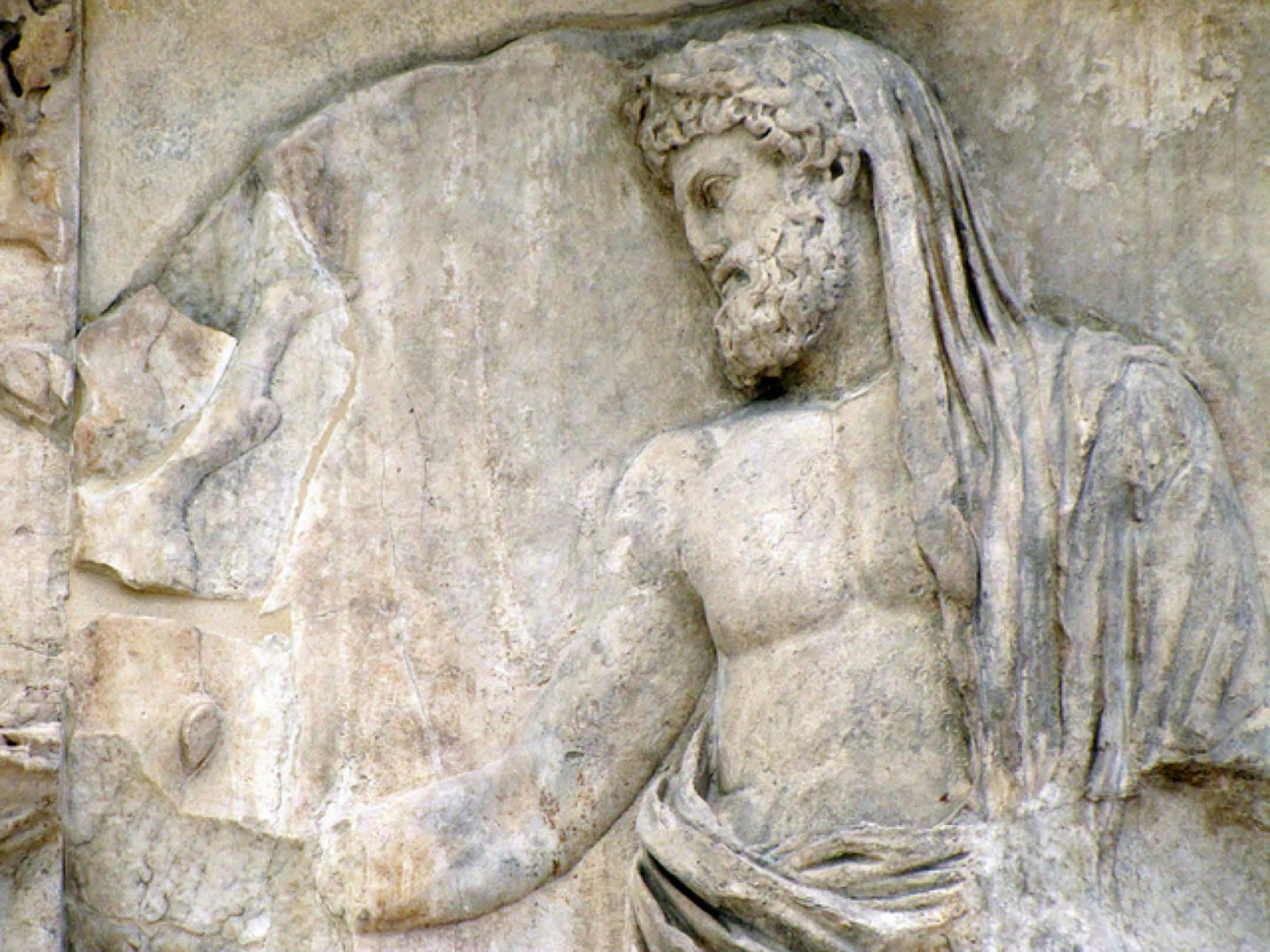
This week we’re exploiring ancient North Africa and Italy, and then we’re starting our exploration of the Romans and their story. This is the beginning of the rise of the people that within a few centuries would dominate the entire Mediterranean, including most of the peoples we’ve studied.
At first Rome starts out as a city-state within the city-state culture of Latium with its own priest-king, just like the city-states in Sumer. But the Romans get fed up with the kings after a while and eject them from Rome. What do you think makes them turn against the kings? Is it just the actions of the kings, or does it go deeper? Why do you think the legends about the fall of the kings focus so much on the Rape of Lucretia as the thing that turns the Romans against the kings? What does the story of that rape signify to them?
Looking forward to your discussions and reactions. See you Thursday!
Midterm Exam grades are posted
5 April 2022
The midterm exam grades are posted on the grading page.
Exam Notes. Note that included in the PDF, behind the grading cover sheet, is a handout with notes on the responses for the first four sections of the exam.
Curve. The grades for the midterm, on average, were a few points lower this semester than in previous pre-COVID terms, which I am chalking up to everyone getting used to the rigors of in-person meetings and the associated difficulties in adjusting study habits after two years online. For this reason, I have done something I never do, which is to implement a slight curve on the midterm exam letter grades. This is the reason for any difference between the letter grade you’d expect from the raw calculated grade in the PDF and the letter grade shown on the grading page. This curved grade is also factored into your estimated course grade at the bottom of the grading page.
I am implementing this curve for the MIDTERM ONLY. For the final exam you will have more time and a better understanding of what to expect from the exam and the kinds of things I’m looking for, plus more opportunities for extra credit. The final also counts more, so if your midterm grade isn’t ideal, bear in mind that the increased time and awareness that you’ll have for the final mean that you can compensate for a disappointing midterm with a stronger final exam.
Estimated Course Grade. Even if your estimated course grade is low now, that does not mean you will not pass the course—the final and two essays are still ahead, which together are more than half your course grade.
Also: if you are concerned about your overall course grade being lower than you want it to be at this time, make sure you (a) turn in your Gilgamesh essay if you have not done so, or (b) submit your revised essay if you have reversible deductions, to get those points back.
Blue Books. I did not mark up the blue books. If you want them back anyway, to compare your answers with the exam notes, you can pick them up from me in my office hours (Tuesday 11-12 or 5-6) or in my office before or after class on Thursday.
Quiz #6 grades and markups posted
4 April 2022
The grades and markups for Quiz #6 are posted on the My Grades page.
The Quiz Notes for Quiz #6 are live on the Print/PDF page.
Welcome to Week 10!
3 April 2022
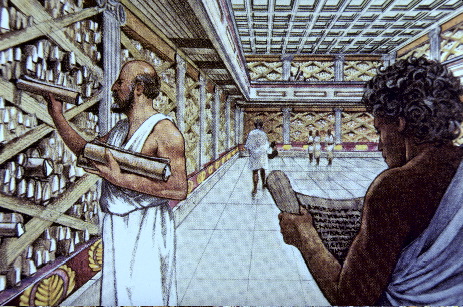
This week we’re talking about the Peloponnesian War and its aftermath.
With the Peloponnesian Wars, the Greeks are fighting each other in a massive, generation-long slog unlike anything the ancient war has seen. Why? Why are they fighting, and why does it last for decade after decade? What is this war really about? Can we blame a particular city for this? Why do you think it turns out the way it does?
More wars between the Greeks opened them up to invasion by Macedon and the famous conquests of Alexander the Great. Why do you think the Greeks couldn’t maintain any real peace in during this era, even when danger loomed from the north? What were they really fighting about?
A big part of this story are the two Macedonian kings, Philip and Alexander. What do you think was most instrumental in Philip being able to take over Greece? Was his son, Alexander, really that “great”? Was his conquest a failure because it didn’t remain unified? What are Alexander’s legacies for the world?
The other thing I really wanted to do with you folks this week is hash out what you guys think of Clouds now that we’re finishing it. There are some very striking scenes toward the end. What was most shocking or impactful for you—the debate where Unjust Argument wins (and: why does he win??); Pheidippides attacking his father; or Strepsiades abandoning rational discourse and taking up a torch?
Looking forward to discussing all of this with you. See you Tuesday!
Welcome to Week 9
27 March 2022

This week we’re exploring two great Greek cities. One is Sparta, a society dedicated to the art of war. What do you think goes into making the Spartans like this—so different, so focused on being warriors? What does being a warrior society mean to them? Why aren’t more poleis like this, especially given the other cities are so impressed by the Spartans’ dedication? Is the Spartan experiment a success, in Greek terms? What are the most positive aspects of the Spartan society in terms of the well-being of its citizens? What are the biggest drawbacks of the Spartan system?
We’re also covering the foundations of Athenian society. Culturally, Athens is the most important of the Greek poleis—just ask them!—but their story is like a fever dream, starting out as a tightly-managed oligarchy of a few privileged families and ending as Hellas’s only radical democracy. Why do you think Athens was so volatile? What is it about Athens that made them become so aggressive in seeking cultural dominance?
The Persian Wars are a huge watershed for the Greeks. Even the battles of this war remembered forever—Marathon, Thermopylae, Salamis. Why do you think the Greeks are really able to defeat the vastly more powerful Persians? How do you think the war changes them? What was most remarkable to you about the Persian Wars?
With the Peloponnesian Wars, the Greeks are fighting each other in a massive, generation-long slog unlike anything the ancient war has seen. Why? Why are they fighting, and why does it last for decade after decade? What is this war really about? Can we blame a particular city for this? Why do you think it turns out the way it does?
Also, we see the middle section of Clouds, where the “Socrates” character gets weirder and weirder, and Strepsiades gets more and more confused. What do you think Aristophanes is getting at here? What was he trying to show by having “Socrates” talk about the gods and he-chickens and she-chickens and things like that?
Looking forward to discussing all of this with you. See you on Tuesday!
Gilgamesh grades and markups are posted
22 March 2022
The grades and markups for the Gilgamesh essay are finally posted on the grading page. I want to apologize again for the delay in getting these finished. I can be slow to grade at times, but this semester the collision with other stuff impacted on you as well as me, and I do regret that outcome.
Overall I’m very pleased with the essays. There were a lot of interesting discussions and, here and there, some unusual perspectives I don’t see often. Many of you really made the most of this opportunity to understand the values and ideal of a culture that lives four thousand years ago, and I’m gratified to see it.
Reversible deductions. Some of you may find that you received “reversible deductions” for issues relating to formatting and citations. The good news is, those are points that you can get back. Check the cover page of your markup to see if there are any hand-written points taken off next to the reversible deductions. If there are, I made notes on the cover sheet or in the essay about the issue, and included a handout with the requirements.
Please resubmit your essay to BlackBoard with those problems fixed, and I’ll be in a position to reverse those deductions. Only reversible deductions can be reversed, so don’t resubmit for anything other than reversible deductions.
Missing essays. If you have not submitted your Gilgamesh essay, I strongly advise you to do so even though it is late. The lateness penalty is capped at 30 points maximum, and submitting an essay and getting a reduced grade is much, much better than a zero on the assignment for your overall course grade.
Clouds essay. I’m sure you are all thinking about your Clouds essay (in some part of your brain, at least!). As you read, please consider the prompts and how what you read in the play as we go might shape what you have to say in your second essay. Be thinking about what other work will be effective as a comparison to Clouds. Make sure to watch the Essay #2 overview video if you have not done so.
Remember, just as the goal of the first essay was to better understand how people thought and interacted with each other in Bronze Age Sumer, with the Clouds essay your purpose is to use this play and the work with which you are comparing it to gain insights into the culture and values of fifth-century Athens. As always I am happy to discuss the play, possible comparison works, and approaching the assignment.
Welcome to Week 8!
20 March 2022
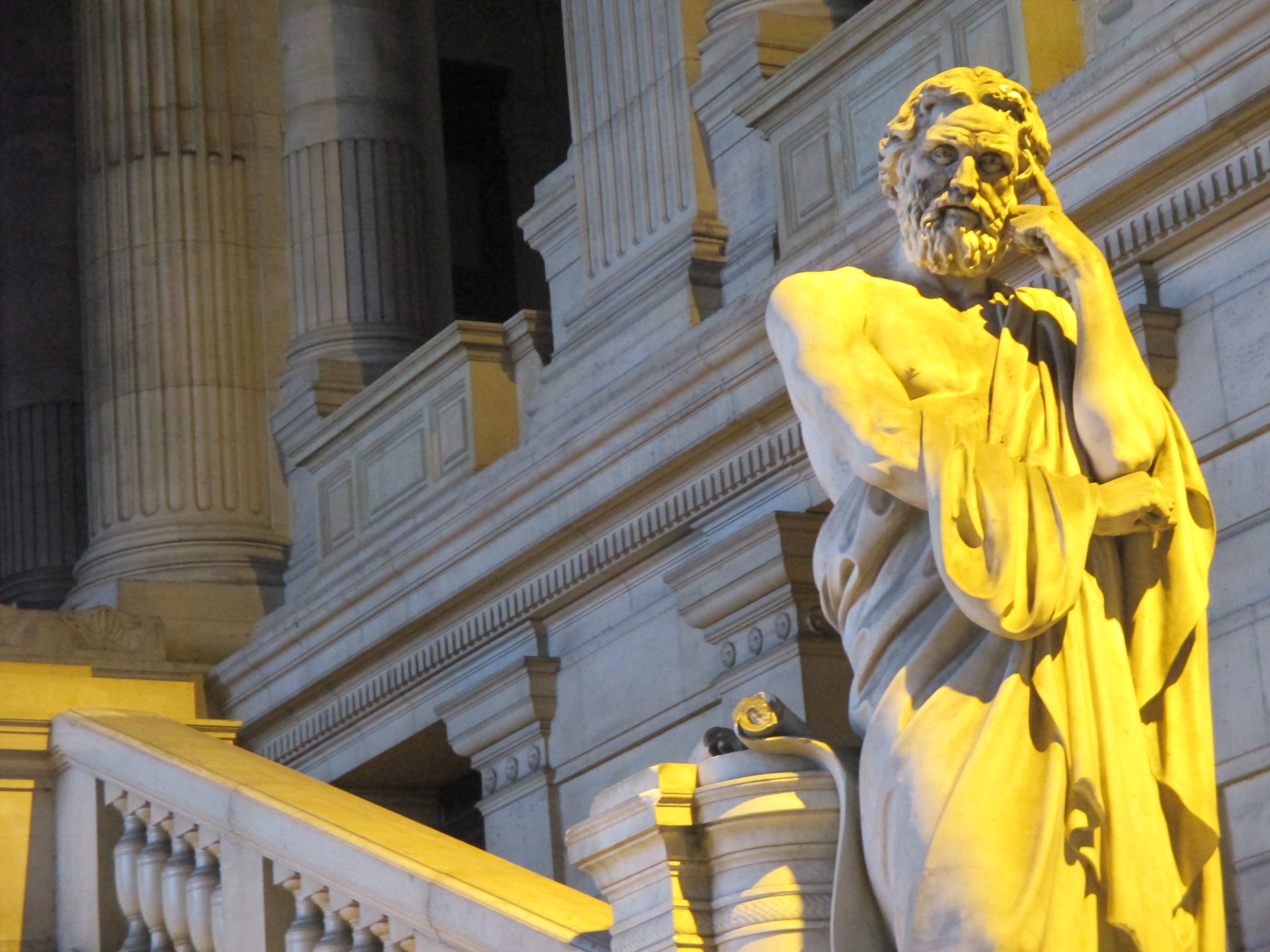
This week after the midterm we’re talking about the period after the so-called Greek Dark Age, when from our perspective Hellas can be heard and seen again, with the foundations of Greek culture already laid down in the previous, unseen centuries. Two influential cities emerge in this period, both with opposing and increasingly extreme ideas of what it means to be Greek.
This week we’re starting our second primary source reading, Aristophanes’s comedy Clouds. It’s ribald, it’s provocative, and most of all it’s a call to arms. Why do you think the protagonist of this play is a confused old man? How does the playwright see the head of the Thinkery, the character called “Socrates”?
Looking forward to discussing all of this with you. See you Tuesday!
Quiz #4 grades and markups posted
15 March 2022
The grades and markups for Quiz #4 are posted on the My Grades page.
The Quiz Notes for Quiz #4 are live on the Print/PDF page.
Welcome to Week 7!
13 March 2022
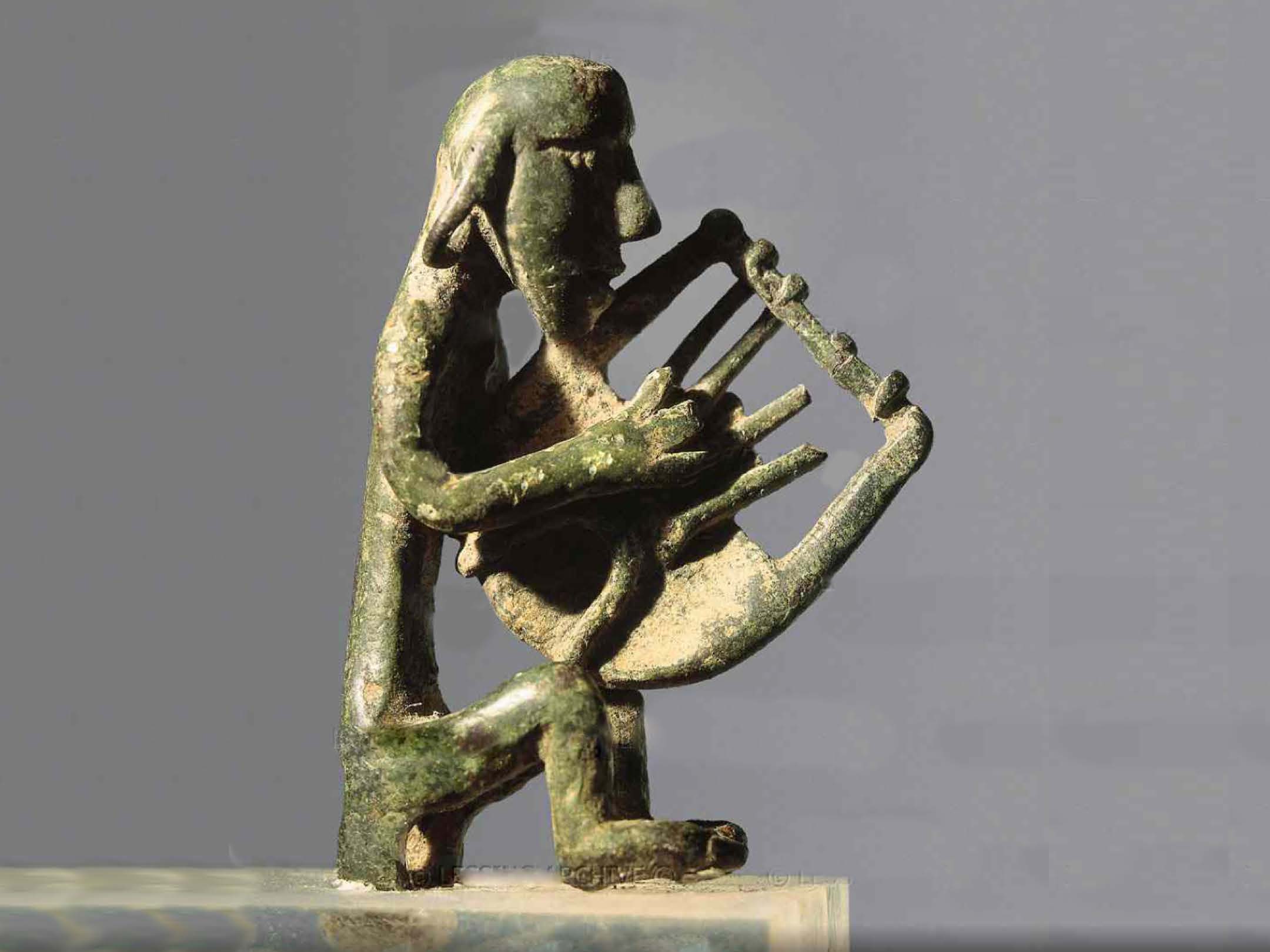
This week, as we continue exploring the earlyt Iron Age, we’re talking about the so-called Greek Dark Age—the period during which the Greeks recovered from the collapse of the Bronze Age and built a new civilization.
The Greek Dark Age is frustrating and fascinating to historians of ancient Greece, because this period of rebirth, during which the foundations and chief elements of Hellas as we know it come into being, happens while the Greeks have no writing system and so there are no literature or records until the very end—we can’t hear them creating a new Greek society.
Our best evidence is Homer, the result of stories performed and passed down orally through these centuries and written down at the end, and we’re reading a few excerpts from Iliad and Odyssey—two works that are to become the starting point for all Greek education, both in Aegean and beyond.
From the reading and the videos, what do you think most drove the Greeks during the Dark Age? If the communities of the Aegean were so isolated and so fiercely independent, how did they end up having so much in common? How did they end up with such a clear idea of what it meant to be Greek?
This course focuses on the Mediterranean, but we’re talking a side trip to ancient Asia this week as well. Why did the Greeks romanticize the Scythian barbarians? Is it a coincidence that the same kinds of things are happening in the Indus valley as are happening in Mesopotamia and along the Nile? What jumps out at you about the culture and religion of ancient South and East Asia?
Looking forward to discussing all of this with you. See you Tuesday!
Midterm Exam review sheet posted
13 March 2022
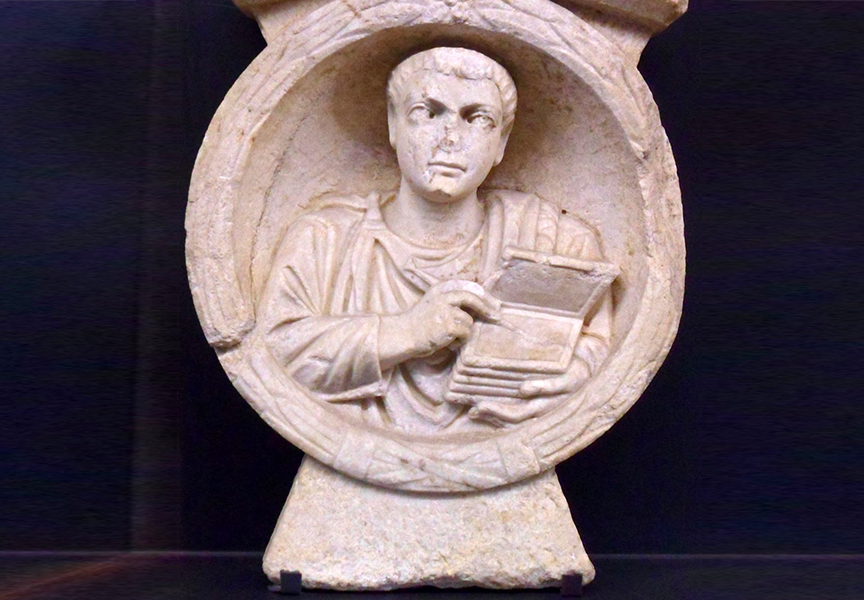
The midterm review sheet is now available on the Exams page, either as a web page or as a PDF. The first page details the content and structure of the midterm, which will cover everything up through the March 17 class meeting.
The midterm exam will be held in-person on Tuesday, March 22 in our normal meeting room and class period. Please arrive on time. You will only have the normal class period (from 9:30 to 10:45 a.m.) to take the exam.
The review sheet is not designed to be a list of answers so much as questions you can use to guide you toward the areas you want to focus on in your review. As you read through the questions on the review sheet, those you have a sense of how you might answer are lower priority for review than those questions you’re not sure how you would answer; those you’d then want to go back and spend some time reviewing in your notes, the readings, the videos, quiz notes, and class discussions.
Also note that the terms are a useful way of finding concepts you need to go back and review, so I’d advise stepping through the terms at the end of each topic and making sure you have a sense of what they mean and why we’re studying them.
To prepare for the essay, I suggest that you focus on the four themes of the course as discussed in the Welcome video—individual/community, mortal/divine, male/female, city/empire—and think about possible questions that relate to those topics across the cultures and peoples we’ve explored. For the essay you’ll be asked to give three examples, so you can sketch out a question about (for example) ancient peoples and their gods and three similar or contrasting examples of societies that show what the gods meant to the ancients.
We will discuss further in class—please come to class with questions about anything you’re not sure of or want to hear more about.
Pre-Graduate School Advising Workshops
13 March 2022
The office of Pre-Graduate School Advisors has asked that the following Spring Workshops be announced to students.
- Workshop 1: Writing the Personal Statement: What to Put In . . . What to Leave out . . . How to Get Started. March 23: Wednesday 3:30 -5:00. To see flyer, click here. Zoom link: https://zoom.us/j/91238727801?pwd=OGdDQWRKbkNRREp4UFpnc0M5MTZGQT09.
- Workshop 2: Interviewing for Graduate School Admissions: What to Say…What not to Say…What to Expect! April 6: Wednesday, 3:30 – 5:00. To see flyer, click here. Zoom link: https://zoom.us/j/91238727801?pwd=OGdDQWRKbkNRREp4UFpnc0M5MTZGQT09.
Weekly advising hours for Spring Term, 2022:
- Prof. Happaney: Wednesdays: 12:00 to 3:00 PM; Fridays: 3:00 – 6:00 PM. E-mail: Keith.Happaney@lehman.cuny.edu. Zoom link: https://zoom.us/j/96024664498?pwd=ZnZZS2d5RytFdTEyVHFjSHRsbkkrQT09.
- Prof. Yates: Thursdays: 3:00 – 6:00 PM. E-mail: Suzanne.Yates@lehman.cuny.edu. Zoom link: https://zoom.us/j/91238727801?pwd=OGdDQWRKbkNRREp4UFpnc0M5MTZGQT09.
Quiz #3 grades and markups posted
7 March 2022
The grades and markups for Quiz #3 are posted on the My Grades page.
The Quiz Notes for Quiz #3 are live on the Print/PDF page.
Reminder about sources for the Essay
7 March 2022
Just a quick reminder that for the first essay you only need to use the Epic of Gilgamesh as evidence for your arguments.
You may not use the textbook (Mathisen). As stated and explained in the syllabus and in class, no tertiary sources are allowed for any assignment, and textbooks are tertiary sources. Using tertiary sources will result in significant damage to your grade for the assignment.
Finally, make sure all of your references to the Epic are cited with footnotes or parenthetical references, whether they are direct quotes, paraphrases, or ideas. In history, all assertions must be supported by evidence, and all evidence must be properly cited. See the handouts on the Resources page and the Elephant Pamphlet for more on citations and bibliographies.
Looking forward to reading your discussions of Sumer and Gilgamesh. Good luck.
Welcome to Week 6!
6 March 2022
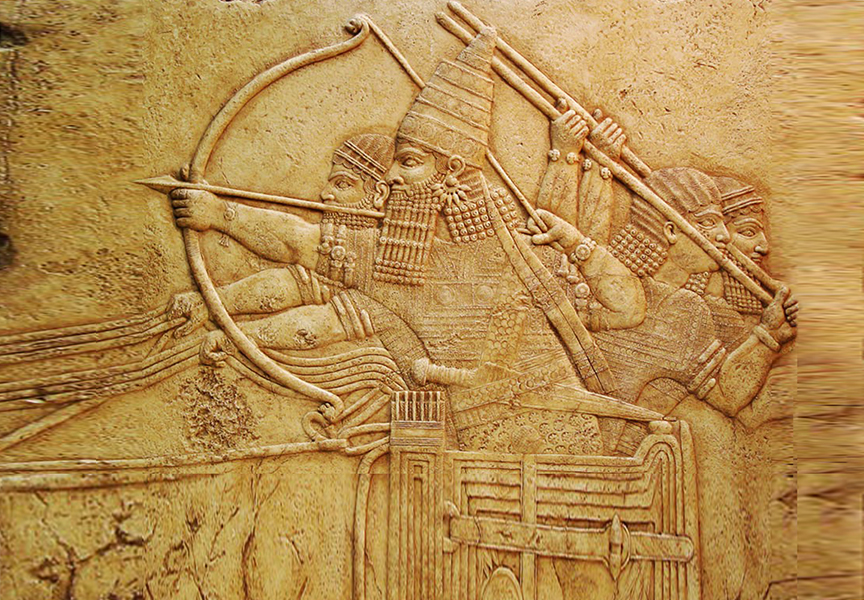
This week we’re talking about two very different empires in the same part of the world: the Iron Age Assyrians, also known as the Neo-Assyrians, and the Persians. Was the Neo-Assyrian empire really a failure? What went wrong, and why did it come apart so catastrophically?
Did the Neo-Assyrians and the Persians have anything in common apart from being empires? What do you think were the most important keys to the success of the Persian empire a century or so later?
Looking forward to discussing all of this with you. See you Tuesday!
Quiz #2 grades and markups posted
28 February 2022
The grades and markups for Quiz #2 are posted on the course website.
In terms of your grade so far, the important thing to remember is that most of the quizzes and all of your other grades still lie ahead, so the current quiz grade is only the beginning. This is all the more reason to make sure you are in class for the quizzes—any grade for a quiz is better than missing it and not having a grade for that quiz.
The notes for Quiz #2 are attached to the markups and can also be found on the Print/PDF page. Come see me in office hours to discuss anything from the quizzes or strategies on how to prepare for them, or to collect your hardcopies if you want them.
Important notes on Essay #1 (due March 7)
27 February 2022
Here are a few brief reminders about the Gilgamesh essay, which is due very soon on Monday, March 7.
- Watch the video. Make sure to watch the overview video, since that tells you exactly what I am looking for. It’s on the Essay #1 page.
- Thesis statement. Make sure you have an introduction with a thesis statement (your argument asserting your position on the question/problem being addressed) and a body that described and discusses three examples from the Epic supporting your thesis statement. For models and explanations on how to do this, see “Writing a Position Paper” (a.k.a. “The Elephant Pamphlet”), which is on the Resources page on the website.
- Sources. For your examples you may use all of Gilgamesh, including the tablets that were not assigned if they contain helpful support for your thesis. You do not need to use other sources for this assignment; this essay is about your interpretation of Sumerian culture as represented in the beliefs, actions, and relations of the characters in the Epic.
- Requirements for all papers. You must adhere to the requirements for all papers (listed on the Essay Musts page). Not meeting the requirements for all papers will mean a lower grade.
- Template. There is an MS Word template already set up with some of the formatting I require on the Resources page. If you use Word I strongly recommend making use of this template.
- Late papers. As per the syllabus, late papers are marked down by ten points per class meeting, up to a cap of thirty points. Avoid this penalty and block out the time you need to prepare, write, and review your essay so that it can be submitted on time.
- BlackBoard. All essays are uploaded to BlackBoard. Look for “Upload Assignments Here” in the left-hand menu. Your essay needs to be uploaded as a Word (preferred) or PDF file attachment, not pasted in as text submission. If you use a browser-based word processor, you’ll need to download or export to a Word document and upload that.
I’m happy to discuss any aspects of the Epic or the essay, so please come to me if there’s anything you’re not sure about. I’m looking forward to hearing your interactions with the folks of Uruk!
Welcome to Week 5!
27 February 2022
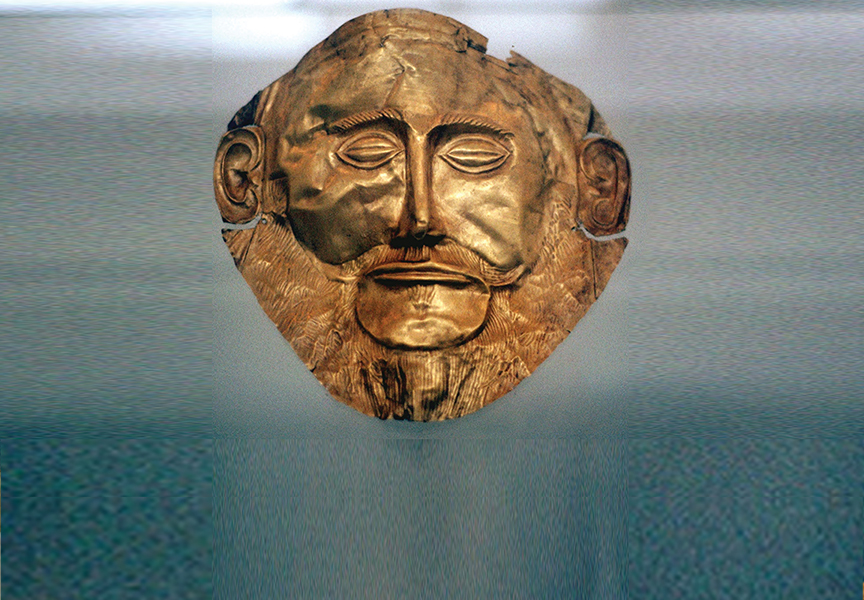
This week we’re talking about the Bronze Age Aegean: the indigenous inhabitants, especially the mysterious Minoans, and the invading Greeks, who swarm in from the north and take over the Aegean world before bringing about their own spectacular collapse, bringing down the whole Bronze Age with them.
There are a lot of things to talk about here. What strikes you as most intriguing about the Minoans—what we know of them? Why do you think the Mycenaean Greeks were so successful in surpassing them? If you were to talk about what was important to the Minoans and to the Mycenaean Greeks, what would be similar, and what would be distinctive? Were the Mycenaean Greeks their own worst enemy in too-greedily building a trade empire, or should we emphasize other factors in the great cataclysmic collapse of the Bronze Age and its civilizations?
We’re also talking about the dawn of the Iron Age, which we see first in Canaan—now that it’s not being warred over by the surrounding Bronze Age empires, the lands along the eastern shores of the Mediterranean are free to develop their own strength and economic reach. And they’re very characteristic of how the Iron Age differs from the Bronze Age. We’re focusing on three very distinct peoples who are rivals for land and independence in early Iron Age Canaan: the Phoenicians, the Philistines, and the Hebrews.
Why is the Iron Age so different, do you think? Why does a shift to iron matter so much? What do you think most sets apart a trade empire like that of the Phoenicians from the empires of the Bronze Age we discussed? What do you think are the biggest factors in the Hebrews being able to create their own state in Canaan despite huge disadvantages? How does religion factor into the story?
Looking forward to hearing your thoughts and reactions. See you Tuesday!
Quiz #1 grades and markups posted
22 February 2022
The grades and markups for Quiz #1 are posted on the My Grades page page.
You may be concerned about how well you did. Generally speaking, as I noted in class, the first quiz is always more of a challenge because you’re not used to what the quizzes are like in this course and the kinds of questions I ask, but that will change as the semester progresses. The main thing is to come into the quiz prepared, having done the readings, watched the lecture videos, participated in the class discussion, and pregamed the quiz itself by planning out likely topics and the assertions and examples you would provide in relation to questions about them. Remember, I try to ask open ended questions for which the best answers are assertions supported by examples; if you factor that into your preparations and thinking ahead about each quiz’s content you should have an advantage when taking the quiz itself.
The quizzes are normally graded within a few days of the quiz end date; sometimes this will be the next day, sometimes by the end of the weekend. I’ll make an announcement by email when the grades are posted. Grades and markups, once they’re available, are posted on the grading page.
More about the My Grades page: This is where I will be posting all the grades and markups for the quizzes and written assignments, as well as your overall course grades at the end of the winter semester.
To access the grading page, choose your name from the dropdown and click on “email me my password”. Your password will be mailed to the email address I have for you. If you do not receive the email with the password, check your junk folder—gmail users especially, as gmail likes junking those emails—and if it’s not there, please email me for the password.
Right now there’s nothing much to report, but you can still go and take a look. Currently it’s only showing the first quiz. There’s no “current grade” calculation for participation yet, not until we have more meetings. Later, as we have the quizzes and the first assignments, you’ll be able to track how you’re doing by the estimated grade calculations at the bottom of the page.
Let me know if you have any questions. See you Thursday!
Slides page upgraded
21 February 2022
I’ve upgraded the Slides page so that you can view the slides by thumbnail as well as in a carousel.
Welcome to Week 4!
20 February 2022
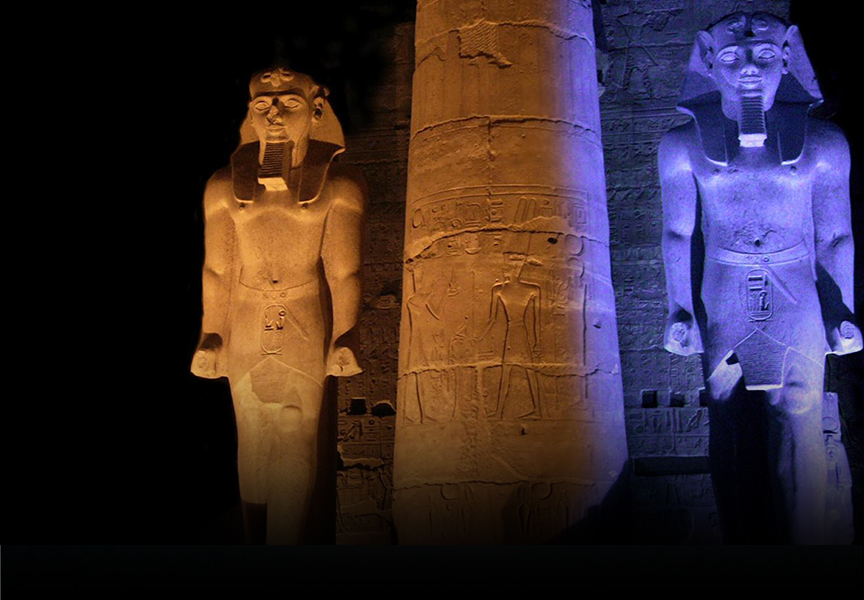
This week we’re talking about Egypt! This is a society that emerges around the same time as Sumer, and yet they could not be more different. Ancient Egypt has fascinated and perplexed students of history for thousands of years. What stands out the most to you about Egyptian society and culture? This is one of those rare cultures where absolute monarchy remains stable and effective for century on century. Why is that? What do you think makes the role of the pharaoh work without abuse of power? What do you think are the most important values and beliefs to an Egyptian? How does this affect the way they think about the gods? How does it affect how they think about death? How is Egypt during the New Kingdom different from the Old Kingdom?
It’s striking how different Sumer is from Egypt. What do you think goes into making them so opposite to each other? Egypt unified early. Why was it possible there, and not in Sumer, where the city-states remained fiercely independent? What’s most different about their views of the gods, of kings, of death?
Speaking of death, this week we also read the next two assigned tablets of Gilgamesh. Why do the gods agree to send the bull and to punish Enkidu, when they were the ones that created Enkidu in the first place? What does Enkidu’s death mean for Gilgamesh? What is the author trying to impress on the reader in this climax to Gilgamesh’s relationship with Enkidu?
Looking forward to discussing this with you. See you Tuesday!
Welcome to Week 3!
13 February 2022
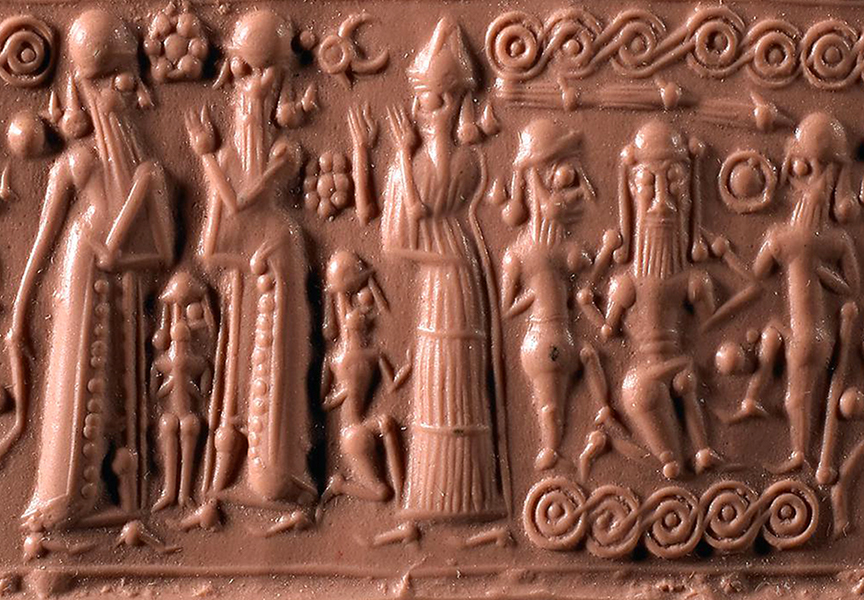
This week we’re progressing through the story of the civilizations of Mesopotamia, the land between the rivers: the original inhabitants in Sumer to the south, and the alien newcomers, the Semitic tribes that settle in Akkad, Babylon, and Assyria. They’re the strangers with their own languages and cultures who start to emulate, and, later, absorb the great cities and culture of the Sumerians.
In the discussion this week I want to talk about lots of things. What characteristics are distinctly Sumerian? How do they see the world, and why? Another topic is how different the Sumerians and the Semitic peoples were—why did they build Sumer-style city-states, even down to the ziggurats for their own gods, and end up adopting Sumerian technology? Why do you think the Sumerians didn’t survive? When Sargon of Akkad built an empire, what was it based on, and why didn’t it last very long after he died? Why do you think so much significance is attached to the Code of Hammurabi?
This week we’re also looking at tablets 2 and 5 of Gilgamesh—the taming of Enkidu and the fights with Humbaba, the forest guardian. What jumps out at you most from these two tablets? Why do Gilgamesh and Enkidu go on this quest? Is it just about glory, or is there more to it? What do you think is the symbolism in Gilgamesh and Enkidu attacking the guardian of the cedar forest? Note what happens to the cedar, too—what can we say about that? And what about the way Enkidu and Gilgamesh interact in these tablets? What’s that telling us about these two, and why Enkidu was the gods’ solution to Gilgamesh’s bad rule?
Looking forward to discussing all of this with you. See you Tuesday!
Welcome to Week 2!
6 February 2022
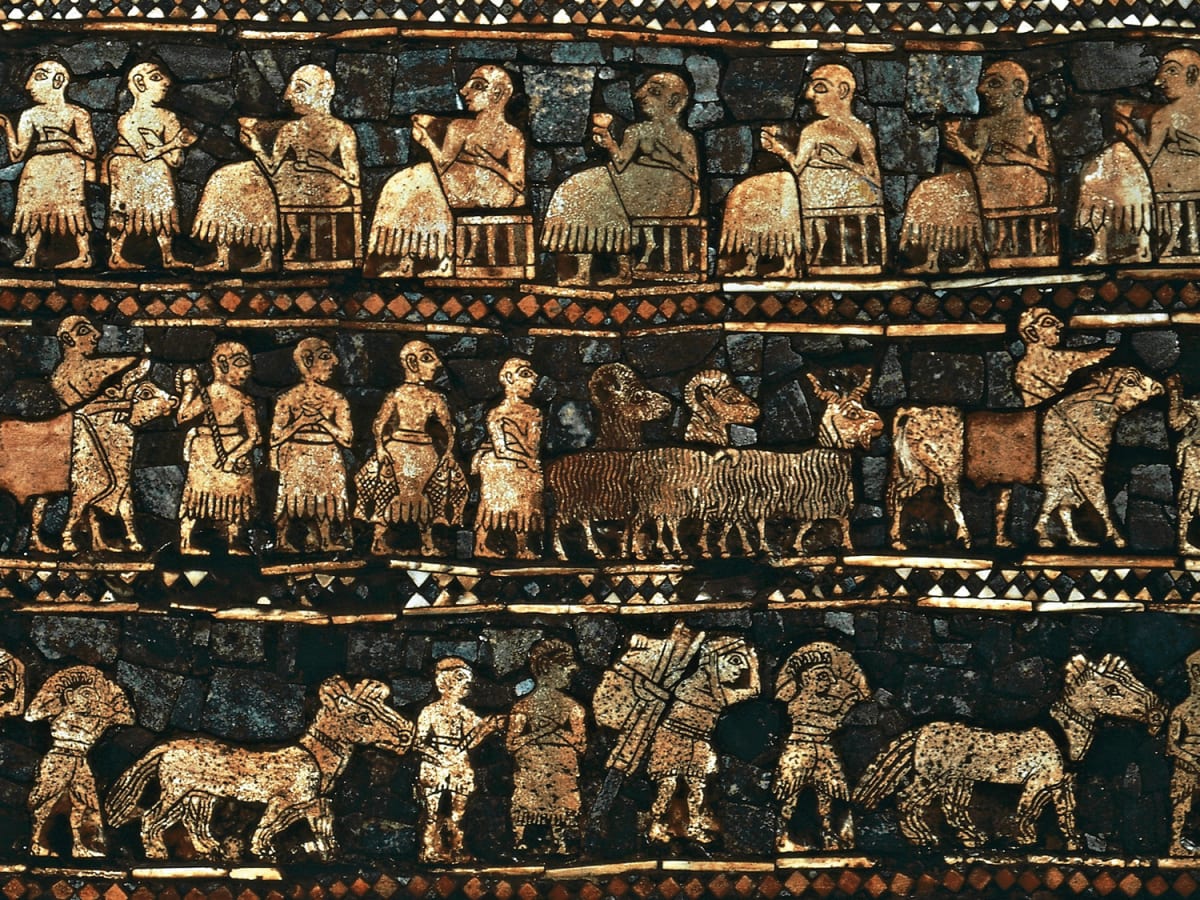
This week we’re talking about the origins of the unique culture of Sumer and their city-state culture. What do you think drives your identity—your sense of who you are—if you’re from one of these city-states?
We’re also reading Table 1 of Gilgamesh. Pay special attention to why the citizens of Uruk are angry with Gilgamesh—what does that tell us about the role of the king in their community?
Also, just a reminder that there is no class meeting Tuesday owing to Tuesday being Friday classes. See you on Thursday!
Welcome to Week 1!
31 January 2022
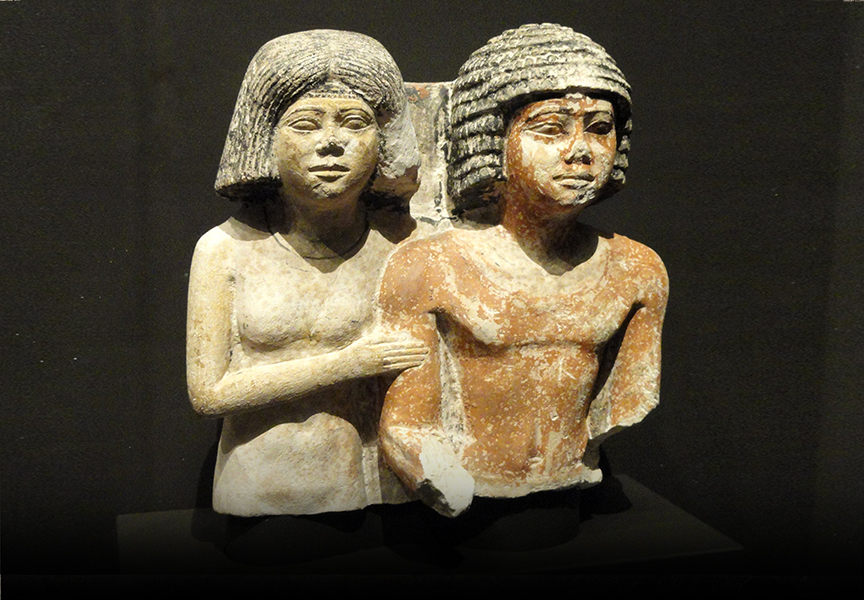
This is just a quick note to welcome you to the beginning of Civilizations of the Ancient World. I’m looking forward to exploring the ancient world with all of you.
Meeting in person will be an interesting challenge after two years away, but I know we can make it work. Try to arrive on campus early, as there may be lines at the entrances to campus.
Syllabus and video: As a reminder, the syllabus, assignments, and requirements are all, which is on my website, markbwilson dot com. Make sure you’ve looked through the site and that you’ve watched the welcome video, which talks about how the course works and answers some common questions.
Books: Also make sure you have the books. We won’t need the Four Texts about Socrates until March, but you’ll need both the textbook and Gilgamesh right away, as there are assignments this week. The reading assignments on the Schedule page of the website are what you need to have read (and thought about) before coming to class.
Email me: Most of you replied back to the welcome-to-the-course email I sent you after you enrolled, confirming that I have a good email address for you. If you didn’t, could you do me a favor and email me and let me know that I can use this address, or that that a different email is better for you? Thanks.
That’s it for now. Let me know if you have any questions. I’ll see you all tomorrow!
Welcome to Civilizations of the Ancient World (Spring 2022)
14 December 2021
Welcome to Civilizations of the Ancient World! I’m looking forward to a great semester exploring the cultures and transformations of ancient societies, from “prehistory” to the rise of the Roman Empire.
For the Spring semester, the course will be in person. Physical attendance in our class meetings is a required part of the course, so if that’s not something you’re up for this course may not be for you.
Right now, I need you to do three things.
- First, look over the course website, which will be our base of operations starting in February. Watch the quick welcome and orientation video (also linked below). Look through each of the pages on the website to see how the course will work, and make sure to click through to the schedule page to see how the readings, videos, and online discussions are set up. Any questions about how it works, please send me an email.
- Second, get the books now if you can. A lot of you will be ordering books online, and you need to make sure you have the books and are ready to go when the course starts on February 1. On the “Books” page I’ve tried to give you lots of different options for getting what you need, but consider ordering now if there’s going to be any kind of shipping involved. (If you come across a legitimate online/e-text version of one of the assigned readings that’s not already listed, please let me know.)
- Finally, please email me so that I know I have a working email address for you. You can just reply, reply and say “hi”, or reply with a question or concern, but I want to make sure I can contact everyone. If you receive an email from me but there is an email address you prefer I use instead of that one, please definitely reply and tell me that.
Email me anytime with questions. I’m looking forward to starting our journey together.
Course website: http://markbwilson.com/courses/UU/aw/aw.php
Quick Welcome and Orientation Video: https://youtu.be/RK4Pq7ZXHG0
Make sure you’re getting my emails
6 December 2021
If you haven’t been getting my emails, that means I don’t have a good email address for you (or they’re going into your junk folder). If this is the case, please email me and let me know what address I should use to reach you.